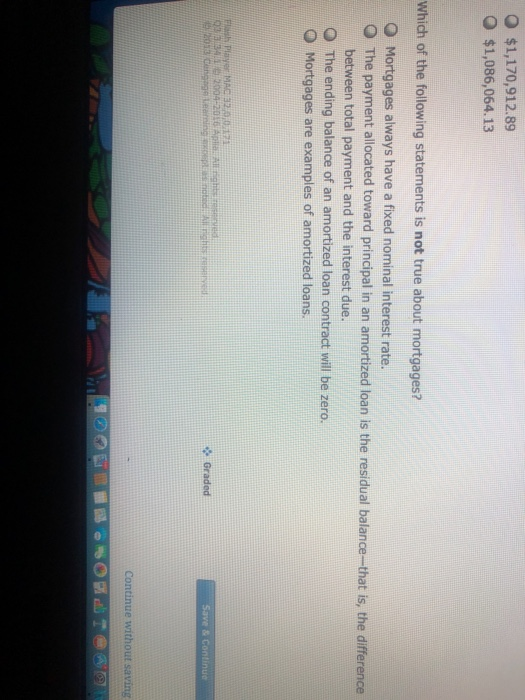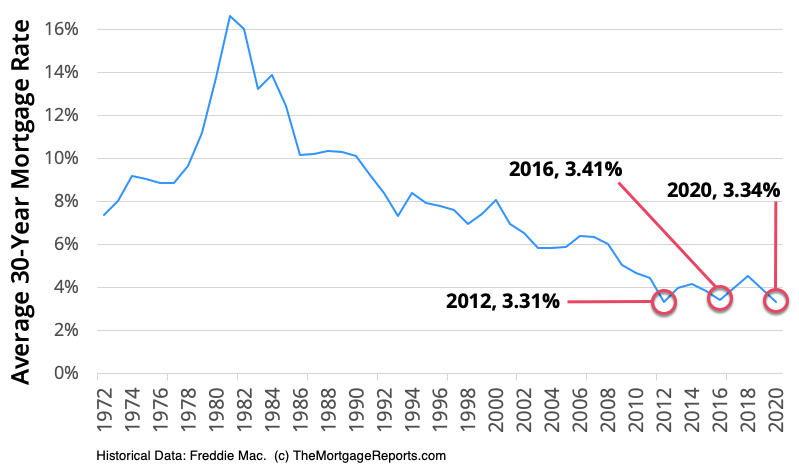Own a paid-off (or a minimum of substantially paid-down) home. Have this home as your main house. Owe zero federal debts. Have the capital to continue paying residential or commercial property taxes, HOA charges, insurance, upkeep and other house expenditures. And it's not just you that needs to qualifyyour home also needs to satisfy specific requirements.
The HECM program likewise allows reverse home mortgages on condominiums authorized by the Department of Housing and Urban Development. Prior to you go and sign the documents on a reverse mortgage, check out these 4 significant downsides: You might be considering securing a reverse home loan due to the fact that you feel positive borrowing against your home.
Let's simplify like this: Think of having $100 in the bank, however when you go to withdraw that $100 in cash, the bank just gives you $60and they charge you interest on that $60 from the $40 they keep. If you would not take that "offer" from the bank, why in the world would you desire to do it with your house you've spent years paying a mortgage on? But that's exactly what a reverse home loan does.
The Best Guide To What Is A Gift Letter For Mortgages
Why? Since there are fees to pay, which leads us to our next point. Reverse home loans are packed with additional expenses. And a lot of borrowers opt https://www.canceltimeshares.com/blog/can-timeshare-ruin-your-credit/ to pay these charges with the loan they're about to getinstead of paying them expense. The thing is, this expenses you more in the long run! Lenders can charge up to 2% of a house's worth in an paid up front.
5% mortgage insurance premium. So on a $200,000 house, that's a $1,000 annual cost after you've paid $4,000 upfront obviously!$14 on a reverse home loan are like those for a regular mortgage and include things like home appraisals, credit checks and processing charges. So before you understand it, you have actually drawn out thousands from your reverse mortgage prior to you even see the very first cent! And because a reverse home mortgage is just letting you take advantage of a percentage the value of your house anyway, what occurs when you reach that limit? The money stops.
So the quantity of cash you owe goes up every year, every month and every day till the loan is settled. The advertisers promoting reverse home loans love to spin the old line: "You will never ever owe more than your https://www.canceltimeshares.com/blog/timeshare-cancellation-company-review-of-wesley-financial-group-llc/ house deserves!" However that's not exactly real since of those high interest rates.
Get This Report on How To Calculate Interest Only Mortgages
Let's say you live till you're 87. When you pass away, your estate owes $338,635 on your $200,000 home. So rather of having a paid-for house to hand down to your enjoyed ones after you're gone, they'll be stuck with a $238,635 expense. Opportunities are they'll have to sell the house in order to settle the loan's balance with the bank if they can't pay for to pay it.

If you're investing more than 25% of your income on taxes, HOA charges, and household expenses, that indicates you're home poor. Connect to one of our Endorsed Regional Companies and they'll assist you navigate your options. If a reverse home loan lender informs you, "You won't lose your house," they're not being straight with you.
Consider the reasons you were considering getting a reverse home mortgage in the very first location: Your spending plan is too tight, you can't manage your daily costs, and you do not have anywhere else to turn for some extra cash. Suddenly, you have actually drawn that last reverse mortgage payment, and then the next tax costs happens.
What Does How To Swap Houses With Mortgages Do?
If you don't pay your taxes or your other bills, the length of time will it be before somebody comes knocking with a residential or commercial property seizure notification to remove the most valuable thing you own? Not long at all. Which's maybe the single biggest reason you must prevent these predatory monetary items.
In a word, a reverse home mortgage is a loan. A property owner who is 62 or older and has significant home equity can obtain against the value of their house and receive funds as a swelling amount, repaired monthly payment or line of credit. Unlike a forward mortgagethe type used to purchase a homea reverse home mortgage does not need the house owner to make any loan payments.
Federal regulations require loan providers to structure the deal so the loan amount does not go beyond the house's worth and the debtor or borrower's estate won't be delegated paying the distinction if the loan balance does become bigger than the house's worth. One way this might occur is through a drop in the home's market price; another is if the customer lives a very long time (what kind of mortgages are there).
See This Report on How Do Banks Make Money On Mortgages
On the other hand, these loans can be expensive and intricate, as well as based on frauds. This post will teach you how reverse home mortgages work, and how to secure yourself from the mistakes, so you can make an educated decision about whether such a loan might be right for you or your parents.
14 trillion in home equity in the very first quarter of 2019. The number marks an all-time high because measurement began in 2000, underscoring how large a source of wealth home equity is for retirement-age grownups. Home equity is just usable wealth if you sell and scale down or obtain versus that equity.
A reverse home mortgage is a type of loan for senior citizens ages 62 and older. Reverse home loan loans permit homeowners to transform their home equity into cash income without any month-to-month mortgage payments. The majority of reverse mortgages are federally guaranteed, however beware a spate of reverse mortgage scams that target elders. Reverse mortgages can be a terrific monetary choice for some, however a poor decision for others.

The 30-Second Trick For How Do Adjustable Rate Mortgages Work
With a reverse home mortgage, rather of the house owner making payments to the lender, the loan provider pays to the property owner. what is an underwriter in mortgages. The homeowner gets to choose how to get these payments (we'll explain the options in the next area) and only pays interest on the proceeds got. The interest is rolled into the loan balance so the homeowner does not pay anything in advance.
Over the loan's life, the property owner's financial obligation boosts and home equity reduces. Similar to a forward home mortgage, the house is the collateral for a reverse home loan. When the homeowner moves or dies, the profits from the home's sale go to the lender to pay back the reverse home mortgage's principal, interest, home loan insurance coverage, and fees.
In many cases, the beneficiaries may select to settle the home loan so they can keep the home. Reverse mortgage proceeds are not taxable. While they might feel like income to the house owner, the IRS considers the cash to be a loan advance. There are 3 types of a reverse home loan.
Unknown Facts About How Do Mortgages Work In Monopoly
The HECM represents nearly all of the reverse home mortgages lenders offer on home values below $765,600 and is the type you're most likely to get, so that's the type this short article will discuss. If your house deserves more, nevertheless, you can look into a jumbo reverse home mortgage, also called an exclusive reverse mortgage.